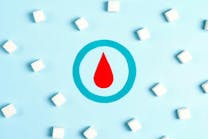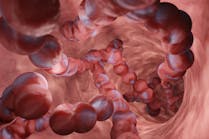Seahorse Bioscience, provider of metabolic analyzers and assay kits for measuring real-time cell metabolism, recently participated in a study with the Mitochondrial Medicine Laboratory at the University of Alabama at Birmingham School of Medicine to develop a “Bioenergetic Health Index,” or BHI. UAB researchers created the BHI, an experimental blood test that can determine a patient’s baseline bioenergetic status by gauging the performance of mitochondria, the cell’s energy powerhouses. A study published in the journal Clinical Science details findings of this blood test that could prove to be a significant early warning system for people with chronic diseases known to damage the mitochondria, such as HIV, alcoholic hepatitis, age-related diseases, and others.
The biology of changing energetics and its role in disease has long been recognized but is not well quantified, due in part to technological limitations in measuring mitochondrial function in small numbers of cells. The Seahorse XF96 Extracellular Flux Analyzer simultaneously measures the two major energy-producing pathways within the cell—mitochondrial respiration and glycolosis—in a microplate, in real time. The Analyzer and Stress Test Kits standardize the measurement of mitochondrial function and glycolysis, helping scientists better understand the connection of physiological traits of cells with genomic and proteomic data. This knowledge will generate new insights into cell metabolism and mitochondrial function, leading to a greater understanding and potentially new treatments for diseases such as obesity.
BHI gauges mitochondrial function by measuring oxygen consumption, which is itself a measure of energy production, in peripheral blood cells. The concept is that as BHI declines, it acts as a biomarker of the patient’s overall ability to provide sufficient energy to fight disease. The BHI could play a significant role in personalized medicine. Read the journal article.
Read more





